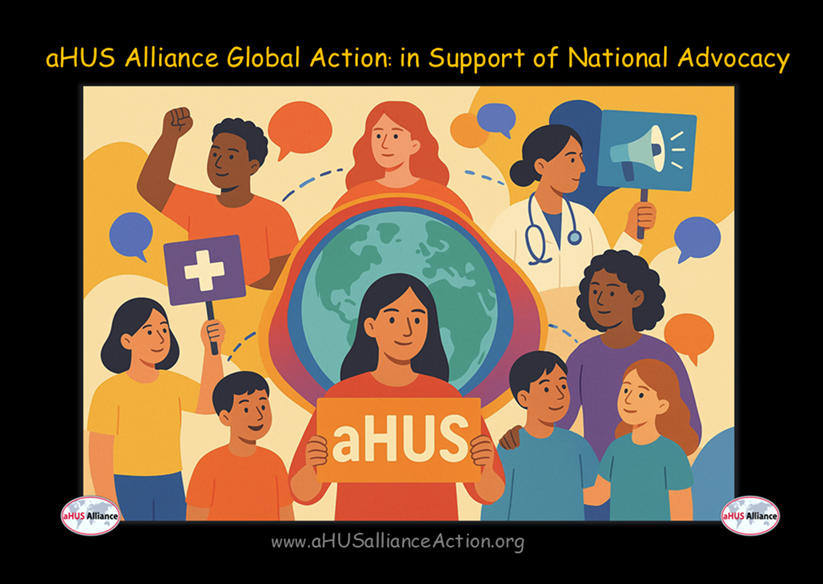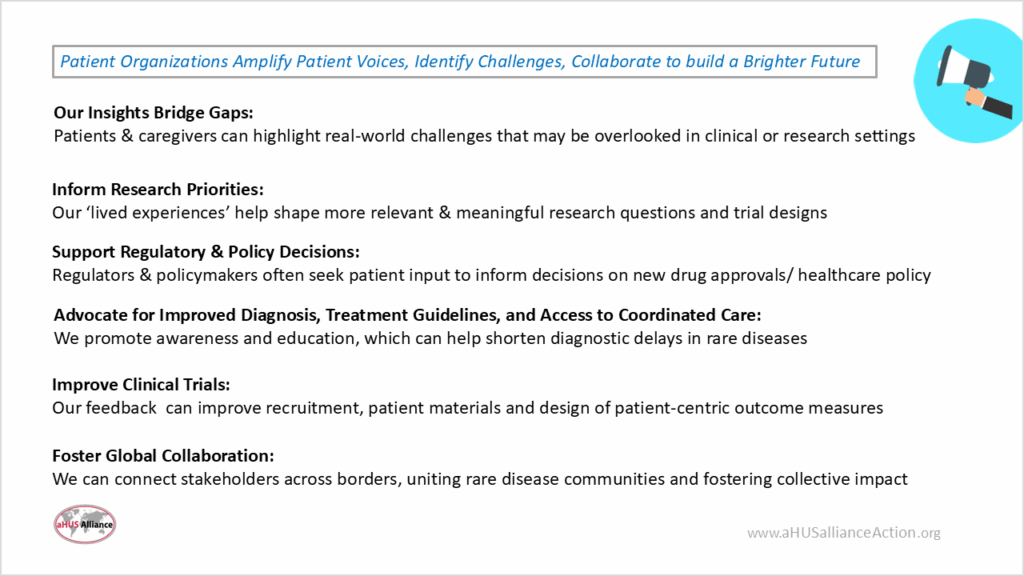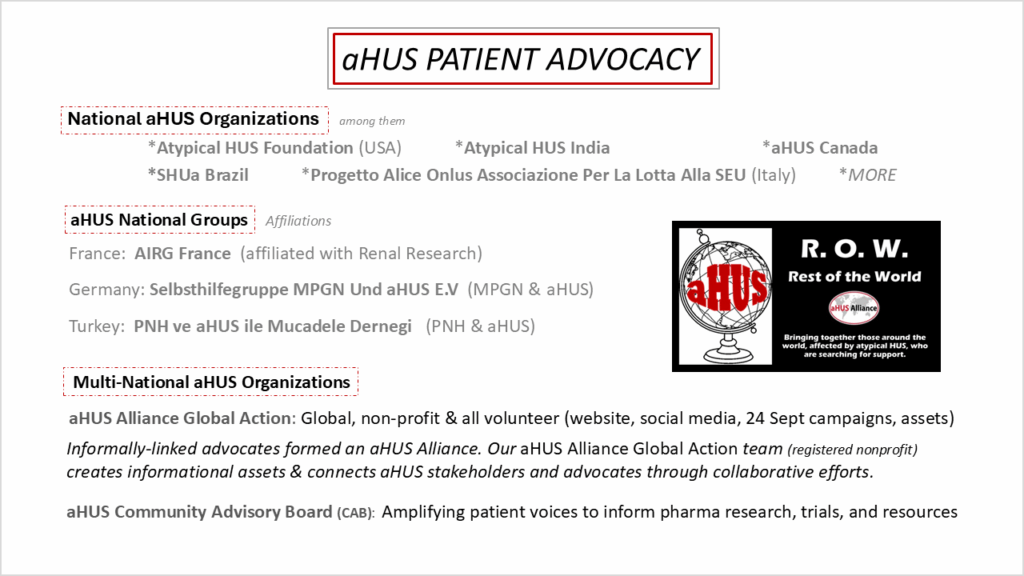
How Global aHUS Advocacy Strengthens Support for Patients, Families, and the Medical Community in Nations around the World
Around the world, people living with atypical HUS (aHUS) often face similar challenges: delays in diagnosis, limited treatment access, financial burdens, and a lack of awareness about this ultra-rare condition. While each country has its own unique healthcare system, the needs of patients and families share many common threads. That’s why advocacy—local, national, and global—plays such a powerful role in improving care and helping healthcare providers and researchers understand the real-world impact of the disease.
At the heart of this work are national patient organizations, which serve as the foundation of effective advocacy. These groups understand the healthcare landscape within their own borders—how insurance works, what treatment options are available, and what barriers patients face when seeking care. Because they hear directly from families, national groups can speak authentically about the challenges their communities experience, whether it’s struggling to reach a specialist, navigating emergency care, or securing long-term access to complement inhibitors or other treatments. Their insights help drive practical, meaningful improvements in care.
National organizations also play a crucial role in advancing rare-disease policy. When new therapies or clinical trials are being considered, these groups bring the patient and caregiver perspective into conversations with regulators, ministries of health, and industry partners. Their input ensures that decision-makers understand not only the clinical aspects of aHUS, but also the lived realities—what daily life looks like, what meaningful improvement means to families, and where gaps in support still exist. This influence helps shape policies that are patient-centered and grounded in real experience.
Collaboration makes these efforts even stronger. aHUS advocacy benefits significantly from connections with other rare disease groups and those focused on related conditions, such as PNH or MPGN. These partnerships increase visibility, amplify shared messages, and allow groups to learn from one another. Many genetic and complement-mediated conditions face similar hurdles in care, research access, and policy recognition. Working together not only broadens the reach of advocacy but also makes it easier to raise common concerns on larger platforms.
An important contribution by the aHUS Alliance Global Action team is supporting the creation of new national aHUS organizations in countries where none yet exist. By offering guidance, mentorship, and practical resources, global advocates help empower patients and families to build their own strong communities and influence change locally. This ripple effect expands support networks and ensures that more patients worldwide have a place to turn for information and connection.
While national organizations are essential, our aHUS Alliance Global Action advocacy team plays a unique and complementary role. We help bring together the many national voices, offering a worldwide view of patient experiences, treatment challenges, and emerging needs. Our global perspective reveals patterns—where access is severely limited, where new treatments are emerging, or how families in different regions navigate care. As an international team aHUS Alliance Global Action has led efforts like the annual aHUS Awareness Day (24 September), developed educational resources, gathered information and data from and about the global aHUS community, served as contributing authors for publications in medical journals and – perhaps most importantly – provided trusted points of connection between patients, clinicians, researchers, and industry.
Ultimately, whether advocacy is happening within a local community, at the national level, or across continents, the goal is the same: to improve daily life and outcomes for people living with aHUS. Achieving that requires unity—patients, caregivers, clinicians, researchers, and industry partners working together to reduce treatment and financial burdens, expand access to care, and ensure that lived experience guides decisions across the healthcare ecosystem.
Our aHUS Alliance Global Action team’s advocacy efforts don’t replace national efforts—it strengthens them. By connecting voices worldwide and highlighting shared challenges, the global community helps accelerate progress and ensures that no family feels alone in navigating this rare and complex disease.

aHUS Alliance Global Action – Our Website offers a 360 Degree Approach to Advocacy
aHUS Patient Advocacy – varied Types & Functions


